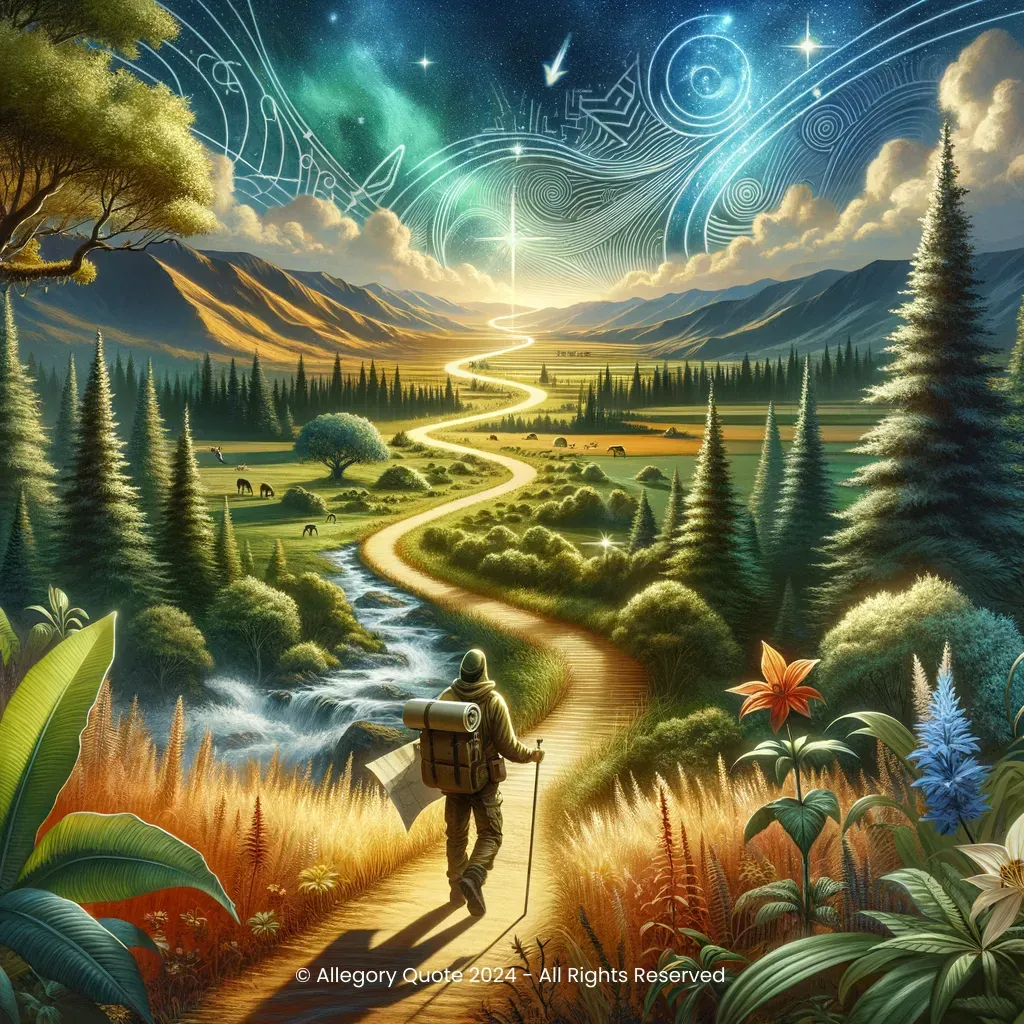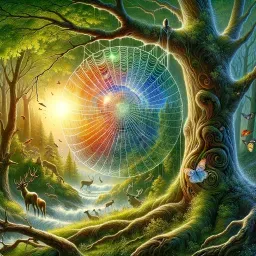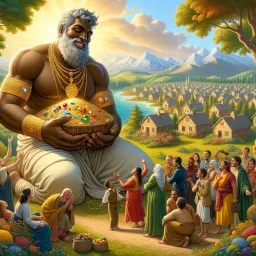Not all those who wander are lost

- Meaning
- The meaning of the phrase "Not all those who wander are lost" is essentially about the difference between appearance and reality. While wandering usually implies a lack of direction or purpose, in this context, it suggests a deliberate exploration and quest for wisdom, adventure, or self-discovery. It emphasizes that the path of wandering can be purposeful and meaningful, even if it seems aimless to others.
- Allegory
- The image features a lone traveler on a winding path to symbolize the journey of exploration and self-discovery. The diverse landscape elements, such as forests, mountains, plains, and rivers, represent the richness and variety of experiences one encounters while wandering. The traveler’s confident demeanor and slight smile suggest that the journey is intentional and fulfilling. The glowing footprints symbolize that each step is purposefully taken, while the diverse flora and fauna highlight the beauty found in taking unconventional paths. The clear sky with sparkling stars in broad daylight signifies that, even in times of uncertainty, there is guidance and hope available, reinforcing the idea that not all who wander are lost.
- Applicability
- This phrase can be a powerful reminder in personal life that taking unconventional paths and exploring different possibilities doesn't necessarily mean one is lost. It can encourage people to pursue their own journeys of self-discovery, personal growth, and adventure, even if those paths diverge from societal expectations or traditional routes. It celebrates individuality, curiosity, and the pursuit of authentic experiences.
- Impact
- This phrase has had a significant cultural impact, becoming a popular quote that symbolizes the beauty and value of unconventional life paths. It's widely cited in literature, motivational speeches, travel blogs, and personal development contexts. It has inspired countless individuals to embrace their unique journeys and reject the notion that wandering or exploring alternative paths is synonymous with being lost or directionless.
- Historical Context
- This phrase was coined in 1954, within the context of the epic high-fantasy setting of "The Lord of the Rings." During this time, the post-World War II era, a period of significant cultural and societal shifts was underway. The major themes of Tolkien's works, such as the struggle between good and evil, the importance of friendship, and the heroism found in common folk, resonated deeply with an audience ready for optimistic tales of resilience and hope.
- Criticisms
- While the phrase is generally well-regarded, some criticisms might include the potential misinterpretation that aimlessness and lack of focus are inherently beneficial, which could lead to neglect of responsibilities or necessary structure in life. Some might argue that it romanticizes wandering without acknowledging the potential risks and challenges involved.
- Variations
- There are numerous variations and interpretations of this phrase across different cultures. For example, in Eastern philosophy, particularly in Taoism, the idea of a purposeful journey and finding wisdom through the experience itself resonates deeply. Similarly, different cultures value the concept of pilgrimage, both literal and metaphorical, as a path to enlightenment or self-fulfillment, which aligns with the sentiment of Tolkien's phrase.
-

The calm before the storm.
-

The more I learn, the more I realize how much I don't know.
-

If you would be loved, love, and be lovable.
-

I took the one less traveled by, and that has made all the difference.
-

When one tugs at a single thing in nature, he finds it attached to the rest of the world.
-

In the end, we will remember not the words of our enemies, but the silence of our friends.
-

We make a living by what we get, but we make a life by what we give.
-

O brave new world, that has such people in't!
-

Success is not final, failure is not fatal: It is the courage to continue that counts.
-

I was working on the proof of one of my poems all the morning, and took out a comma. In the afternoon I put it back again.
-

The true measure of any society can be found in how it treats its most vulnerable members.
No Comments